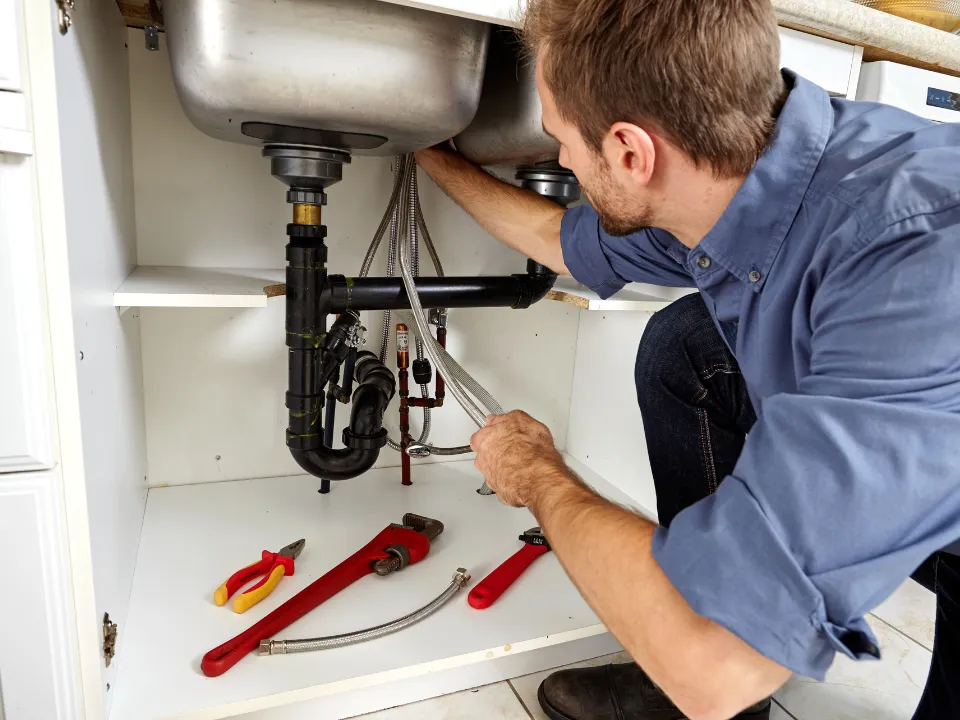Preemptive Plumbing: Advice to Avoid Costly Repairs

Regarding maintaining a home, the plumbing system often is not a priority in the minds of homeowners. However, ignoring the intricate system of piping and fixtures can lead to costly repairs down the line. Preventive plumbing is important for making sure that your home remains a comfortable and safe environment. By dealing with minor issues before they escalate, you can preserve time, money, and anxiety.
In this article, we will investigate practical tips and strategies to help you avoid common plumbing problems. From understanding when to tackle a plumbing task on your own or when to call in the professionals, to periodic maintenance checklists, we will provide a detailed guide to keeping your plumbing system in optimal condition. With the right knowledge, you can prevent unnecessary headaches and make sure your plumbing functions well year-round.
Common Pipe Concerns and Solutions
A of the most common plumbing concerns homeowners experience is a stopped drain. It can be caused by accumulation of grease, hair, and cleaning product buildup over time. To avoid clogged drains before they start, you might try using drain covers and frequently cleaning the sinks and tubs. Should a clog does occur, a pump or a blend of baking soda and vinegar can often do the trick for light blockages. For stubborn clogs, it could be needed to use a plumbing tool or call a plumber.
A further common issue is low water flow, which can be irritating when trying to complete daily tasks. The factors can differ, ranging from a buildup of mineral sediments in pipes to leaks. Homeowners should inspect aerators on faucets and sprays and clean them if warranted. If low water pressure remains, it could suggest a more serious problem in the pipes, and it might be advisable to contact a plumber.
In conclusion, hidden leaks can cause considerable damage if not dealt with promptly. Signs you may have a hidden leak include wet spots on walls or ceilings, an unexpected increase in your water bill, or a moist smell in specific areas. To identify these problems early, homeowners should regularly check their plumbing, including under sinks and around devices. In case you think there is a leak, knowing how to shut off your water in an crisis can avert further damage while you wait for expert help.
Plumbing Maintenance Advice
Regular upkeep is vital for avoiding costly plumbing issues. Property owners should periodically inspect their plumbing for any signs of drips, deterioration, or wear. Checking for damp spots on surfaces and ceilings can help identify hidden leaks promptly. Additionally, ensure that all faucets and showerheads are functioning properly, as drips can waste water and increase your expenses.

One more key maintenance step is to clean out your drainage to prevent clogs before they can develop. Utilize strainers to collect hair and gunk and perform routine flushes with hot water or a blend of baking soda and vinegar to keep the drains clear. It's also sensible to be mindful of what goes down your drainage—avoid putting down anything that can lead to blockages.
Finally, don't overlook your hot water system. Inspect the heat settings and examine the pressure relief valve once a year to confirm it is functioning properly. Cleaning out the tank at least once a year helps remove sediment buildup, which can impact efficiency and longevity. By implementing these preventative steps, homeowners can significantly reduce the chance of plumbing emergencies.
Emergency Plumbing Preparedness
When it comes to critical plumbing situations, being prepared can make all the difference. Start by understanding how to turn off your water supply quickly. This simple action can prevent extensive water damage and save you from expensive repairs. Acquaint yourself with the location of your primary shut-off valve and practice shutting it off. Additionally, consider labeling any valves for easy identification during an urgent situation.
Having a basic plumbing toolkit on hand is crucial for homeowners. plumbing wexford with items like a plunger, a pipe tool, and thread seal tape. These tools can help you address small plumbing issues before they escalate. You should also keep emergency supplies like towels and buckets to manage leaks or spills effectively. Keeping a list of trusted local plumbers readily available can expedite the process of getting professional help when necessary.
Lastly, take preventive steps to minimize emergency situations. Regular plumbing inspections can identify vulnerabilities in your system, enabling you to address issues before they turn into crises. Understanding the common plumbing problems and how to fix them, along with seasonal maintenance practices, will further minimize your chances of encounters with plumbing disasters. Being proactive about your plumbing needs is the most efficient way to ensure your home remains secure and functional.
